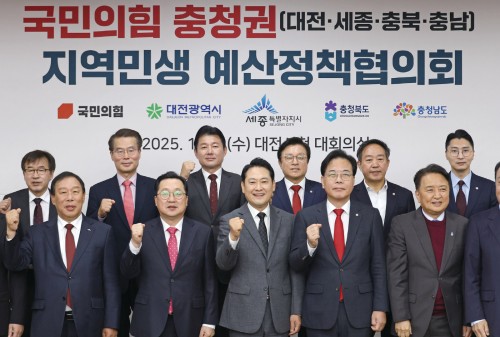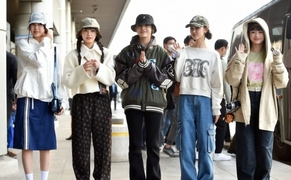 |
| Leaders of the People Power Party (PPP) and governors from the Chungcheong region pose for a group photo during a policy meeting on regional budgets and livelihoods at Daejeon City Hall on November 5. / Source: Yonhap News |
The People Power Party (PPP) is stepping up its attacks on President Lee Jae-myung’s 2026 budget proposal, labeling it a “populist” and “handout-heavy” plan that burdens future generations. Yet the party finds itself caught in a political dilemma ahead of next June’s local elections, where securing regional funding is key to voter support.
While maintaining a firm stance on fiscal restraint, PPP lawmakers are reportedly weighing selective strategies to balance criticism of the government with the need to deliver tangible results to their constituencies.
“It's basically a debt feast that shifts the entire burden to the next generation,” PPP lawmaker Kim Hee-jung said in a KBS radio interview on November 5.
Despite the criticism, the PPP is under pressure to secure local budgets that directly benefit voters. Legislators have traditionally pushed for so-called “note-passing” and behind-the-scenes negotiations to add constituency projects during the annual budget review period. However, such moves risk accusations of hypocrisy—condemning populism while quietly protecting their own districts’ interests.
The stakes are high as the June 3 local elections approach. Party leader Jang Dong-hyuk has been touring provinces to promote large-scale regional infrastructure projects, such as the new TK airport in Daegu-Gyeongbuk and the Gadeokdo airport project in South Gyeongsang Province, highlighting his party’s commitment to local development.
Political analyst Park Sang-byeong said the PPP is likely to “continue opposing the government’s expansive budget plan while simultaneously making selective compromises to secure local funding ahead of next year’s elections.”
Most Read
-
1
-
2
-
3
-
4
-
5
-
6
-
7





















